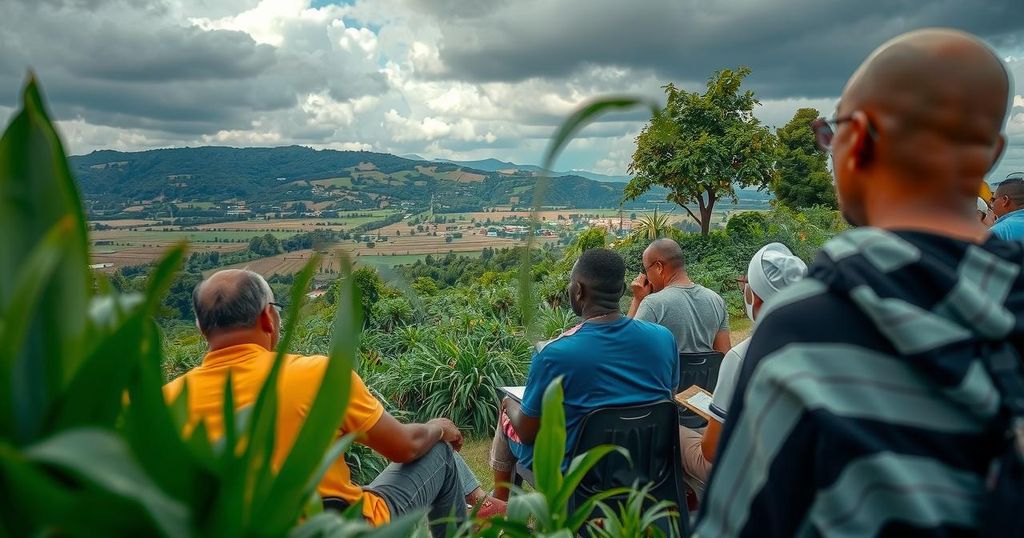The Kenya Union of Journalists (KUJ) and the International Federation of Journalists (IFJ) conducted a workshop for 18 journalists on climate change and environmental reporting. Key discussions focused on the media’s role, challenges faced in obtaining reliable data, and the necessity for journalists to engage deeply with affected communities. Notable speakers included KUJ Secretary General Eric Charles Oduor and IFJ Africa Office Director Pa Louis Thomasi, emphasizing the importance of robust climate journalism.
The recent workshop organized by the Kenya Union of Journalists (KUJ) in collaboration with the International Federation of Journalists (IFJ) gathered 18 journalists from diverse media outlets across Kenya. The focus of the event was to enhance journalistic skills in effectively reporting on climate change and environmental issues. KUJ Secretary General Eric Charles Oduor emphasized that climate change represents a critical narrative of our time, urging journalists to contribute actively by tackling local challenges and highlighting both mitigation and adaptation strategies within their communities. The IFJ’s Director for Africa, Pa Louis Thomasi, acknowledged the myriad obstacles faced by African journalists in addressing climate change, stating that the lack of reliable and contemporary data remains a significant barrier. He noted that even when data is available, governmental reluctance to share relevant information hampers accurate reporting. Furthermore, many media houses, particularly private institutions, often lack the resources necessary to conduct comprehensive investigative journalism in this domain. Marvel Powerson, the lead trainer and a member of the Kenya Climate Change Working Group, highlighted the imperative for climate journalism to combat misinformation by utilizing reliable data and sources. She stressed the importance of understanding the cultural contexts of affected communities, advocating for journalists to immerse themselves in these areas to grasp their struggles adequately. Powerson urged reporters to scrutinize the financial aspects of climate initiatives, demanding transparency and accountability from governments regarding climate financing. Over the course of the two-day workshop, participants engaged in discussions that encompassed the media’s role in promoting climate action, essential tools and techniques for climate journalism, and case studies exemplifying effective reporting practices. Additional topics included media freedom in the context of climate justice, the concept of just transitions, and the evolving challenges posed to climate journalism.
The topic of climate change and its related effects is increasingly crucial in today’s global discourse, particularly for regions like Africa that are disproportionately affected. Despite this urgency, there exists a significant underreporting of climate issues by African media outlets, which often face numerous limitations, including insufficient resources, lack of access to accurate data, and minimal support for journalists specializing in environmental reporting. The workshop held by KUJ and IFJ aims to address these challenges by equipping journalists with necessary skills and insights to enhance their reporting capabilities regarding climate change.
In conclusion, the KUJ and IFJ workshop signifies an important step towards empowering journalists in Kenya to better report on the pressing issues of climate change and environmental reporting. By enhancing knowledge and skills, fostering accountability, and promoting grassroots understanding, journalists can significantly impact public awareness and policy regarding climate change in Africa. As highlighted by key speakers, collaboration and access to credible information are essential for effective reporting in this critical field.
Original Source: www.ifj.org






